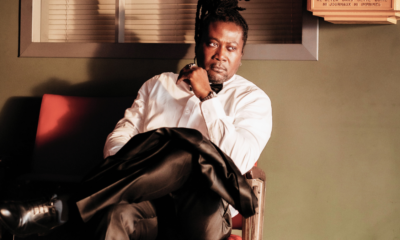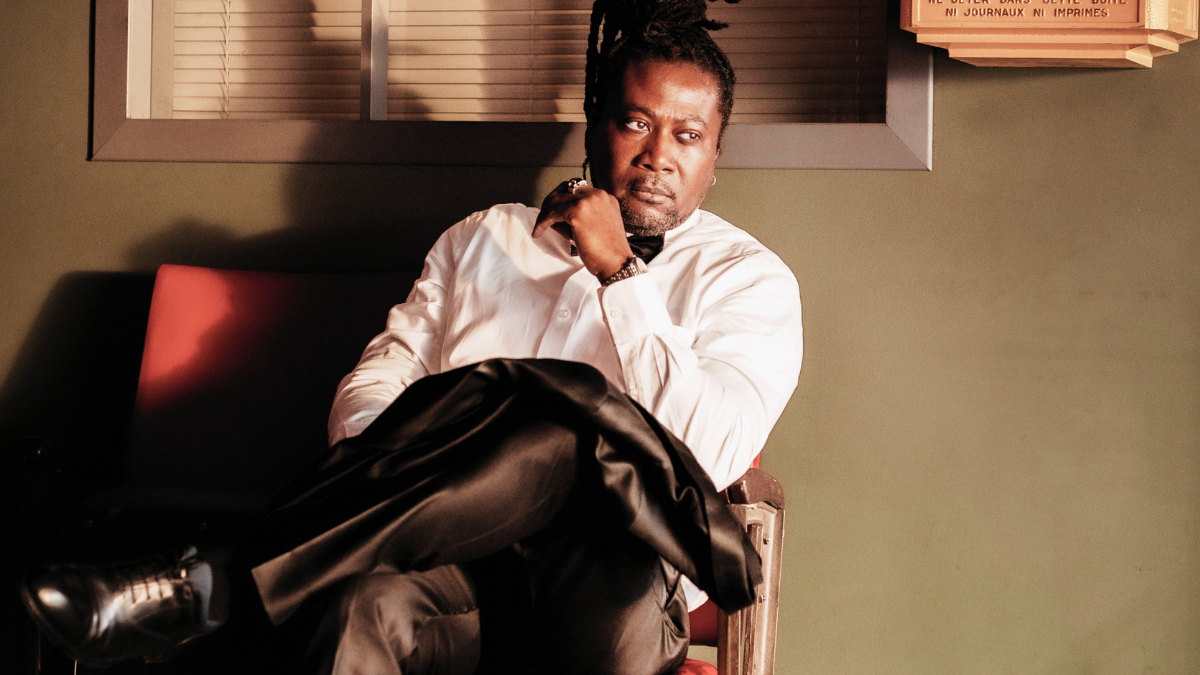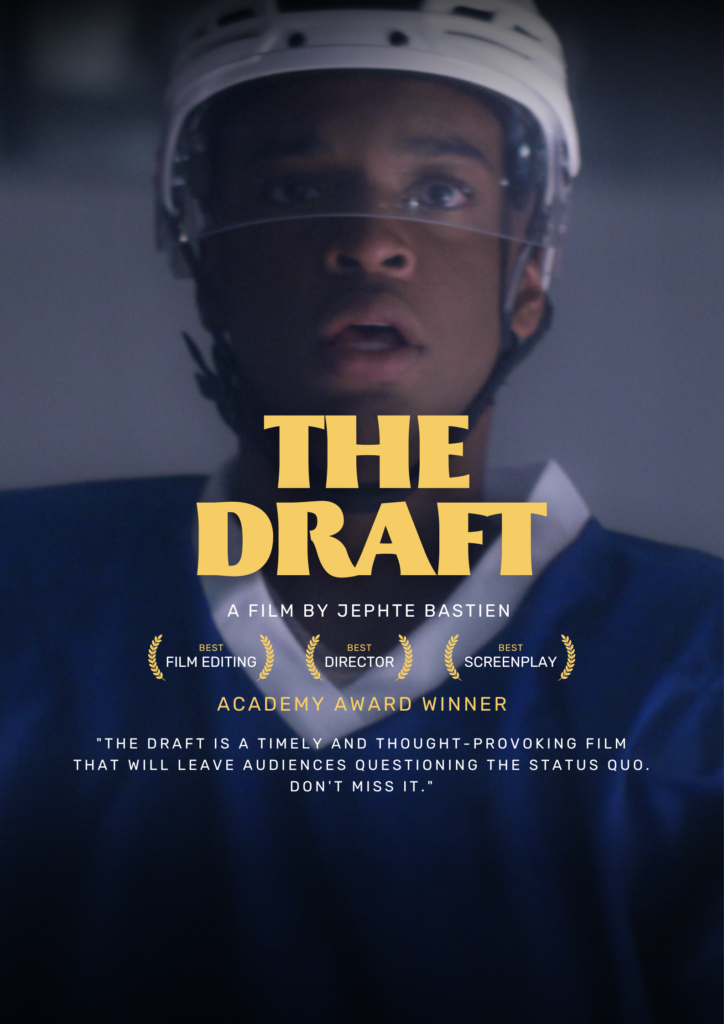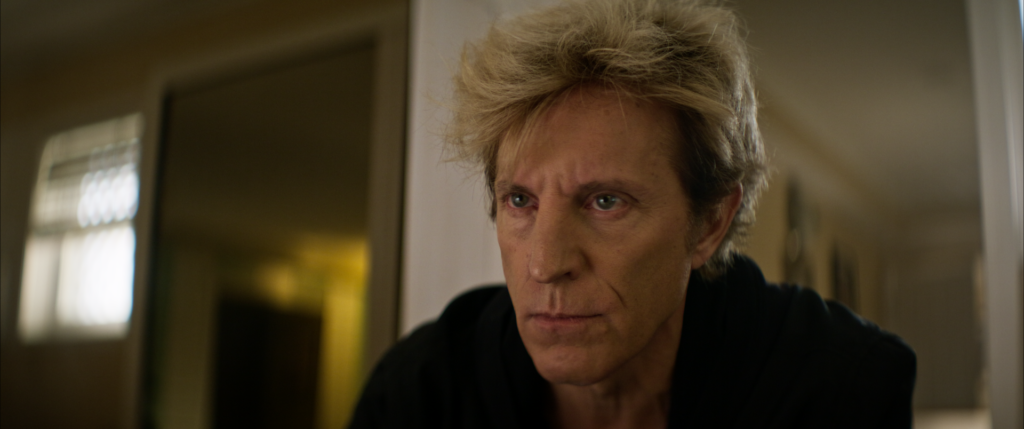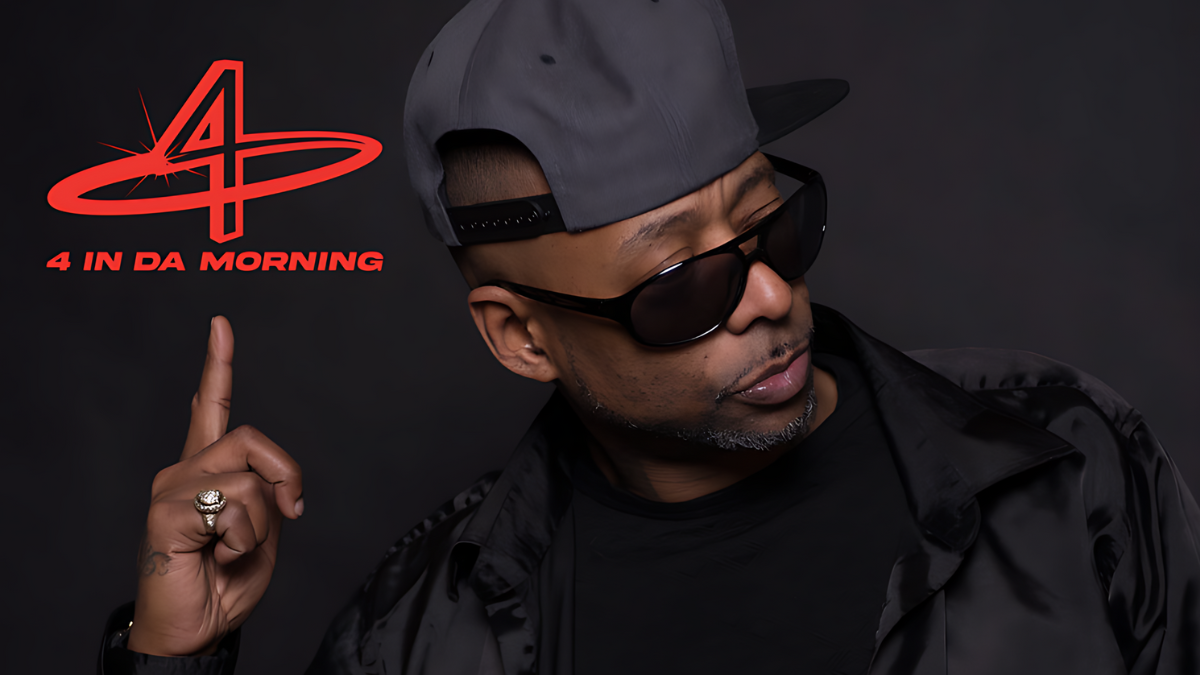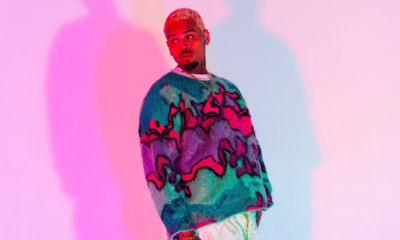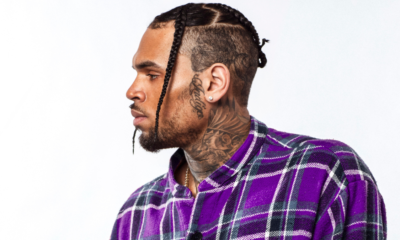There are few people in the world who have the ability to create some of our favourite songs from scratch but Garrett Hamler, known to the world as Sean Garrett, has the gift. Nicknamed ‘The Pen’ by none other than Hip Hop royalty himself, Jay-Z. He has been compared to one of the greatest producers of all time, Sir George Martin (mega producer for a little known boy band called The Beatles who produced 20 number 1 singles in 6.5 years), because of the amount of success Sean has achieved in under a decade, 18 number 1 singles in 8 years. It is no secret that this man has made a name for himself as a certified hit maker but what about his future as a vocalist?
Sean has made a return to his artist roots, decided to pick up the mic, and give The Vocalist Magazine some insight into his mindset, vocal regime, advice to those trying to make it and everything in-between.
“…If I could give any advice to the readers it would be to, not only, train your voice, but to train your mind to have a bigger imagination than just the normal perspective of singing.”
TVM: I have the extreme pleasure of speaking with a man who needs no introduction, Mr. Sean Garrett. How goes it today Sir?
Sean: I’m doin’ good, I’m doin’ good, nice to meet you.
TVM: Nice to meet you as well. Before really getting into the meat of the interview, I think I read somewhere that you speak several different languages. Just out of curiosity, which ones?
Sean: German, (laughs) for starters.
TVM: I’m sorry, German?
Sean: Yes.
TVM: Wow, that’s awesome. How do you say hello in German?
Sean: *Guten tag, wie geht es dir?
TVM: Oh, nice. Well, you have achieved a great deal of success in a remarkable amount of time, something like 18 number 1s in 8 years. You’ve been likened to Sir George Martin, express some of your thoughts on that? If you can even put that into words.
Sean: Well, I’m humbled by the fact that I could be held in conversations with someone like George Martin and other greats. I just worked really hard and can appreciate the opportunity to even be doing what I’m doing. It’s a great challenge always to make the entire world think and get them excited, you know what I’m sayin’? So, I’m just in awe to be compared to someone like that.
TVM: Some, would consider you a multifaceted artist, who pretty much creates records from scratch. What a lot of people don’t really know is that you were actually signed to your first record deal as an artist, in your teens. What do you feel was the catalyst for you to begin your incredible career?
Sean: I think being an artist was one of the catalysts. You know, as an artist I had the opportunity to learn a lot of the things that I’m able to do. I wouldn’t be able to go in the studio with various artists, such as a Beyoncé, an Usher, a Fergie or an Enrique Iglesias and be able to come up with these types of records if I was not initially an artist going though the trials and tribulations associated with being an artist. You have to have doors closing in your face, you have to be told ‘no’, you have to be told you gotta get better, that’s not good enough, etc. A lot of these things helped me become better at my skill and prepared me for the chances that have come afterwards. If I wasn’t an artist first, there is no way that I would have accomplished any of the feats that I have accomplished so far.
TVM: Interesting. Could you tell our readers a little bit more about Sean Garrett the vocalist? How would you describe your voice?
Sean: You know, what’s interesting about my voice, is that I was told many times that I couldn’t sing, or people said I had a weird voice and tone, your voice doesn’t match your body, etc. It encouraged me to become very focused at coming up with a unique style. I kind of taught myself how to sing with the influence of my mother, who was a very religious woman who grew up in the church; I grew up overseas but I was just a great fan of music, practically from birth. Being from Atlanta and growing up abroad diversified my vocal influences. I listened to everything from The Beatles, Gloria Estefan, New Edition, George Michael, etc who were apart of learning how to truly appreciate music from different facets of life. It gave me the opportunity to study different genres, mix different styles, and be creative. Now, I’m able to use my voice in a variety of ways. I can hold my own on a stage, in the video, in the studio, in the pop and urban world; you know what I’m sayin’? I’m very appreciative of having these experiences that I have had, which have made me a lot stronger and a triple threat.
TVM: Right. Do you have a regular vocal routine? And if so, could you tell TVM a little bit about it?
Sean: Yeah, I always try to warm my voice up. I’ve spent a lot of time with vocal coaches. One of my favourites is Mama Jan, from Atlanta and I’ve spent part of these sessions with her learning different techniques, breathing techniques, warming up my voice through scales and mixing that with different styles. You know, jumping into different characters, it’s kind of like you add your imagination with the vocal to create a style for those characters and different emotions, it’s like acting. So, if I could give any advice to the readers it would be to, not only, train your voice, but to train your mind to have a bigger imagination than just the normal perspective of singing.
TVM: Okay, great advice. You kind of take a pretty picture and it looks as though you’re not a stranger to the gym. Do you find a connection between vocal workouts as well as physical ones?
Sean: Yes, I would definitely say that because it’s all about exercise, it’s all about repetition; you improve with repetition. Your muscles become a little bit more defined every time they are worked, same thing with your vocal cords. The more you work them the more flexible they are, the more ability you have to push the boundaries. So I definitely see a big parallel to working your body out and your voice.
TVM: Hmhmm. What do you feel differentiates you from other vocalists?
Sean: Well, first of all, I feel I definitely have a unique voice. As you can hear, my speaking voice can be viewed as fairly deep in comparison to my singing voice, which is a lot sweeter with a distinctive tone to it. A lot of people think I’m singing in a falsetto when I’m really singing in my full voice. I feel like it gives me an edge because of the style of my tone and cuts through the type of tracks that I like to sing on. I can belt, but at the same time I like singing syncopated and melodic; I like mixing the two and I like to be powerful at the same time. It’s just about exercising, like calisthenics with your voice. Being able to sometimes romance, sometimes enhance, sometimes throw a power punch…you know, sometimes I wanna finesse you…it’s just the techniques that I choose to use. On my new single, Anytime feat. The Amigos,
it’s a sexy sound using my lower register but at the same time there’s a certain kind of sweetness that’s glossed over it. I think it speaks volumes to certain people that like that sound.
TVM: Right. Well, for the record I think your speaking voice is also kind of sweet. Which do you prefer more, recording in the studio or performing live?
Sean: I like them both because in the studio you’re alone and you can try different things and then when you perfect it in the studio, you can go out and perform it for the fans where you can reap the reward of their reaction to what you worked hard for in the studio.
TVM: In terms of performing in front of a live audience, what would you like your fans to take away from your show?
Sean: I would like my fans to feel like I gave them all I had, that I’ve influenced them to a certain extent, gave them a different perspective of what they thought of a performer like myself; I like to be different, I don’t like to look like anyone else, I don’t wanna be like anyone else. I enjoy being Sean Garrett; I’m in my own lane. I feel great about being able to perform my own songs and then play 10 to 12 number 1 records back to back that I did for someone else; you know, that’s an amazing feeling. I know there are not a lot of performers that can do that, so that’s what differentiates me from the pack.
TVM: Cool. So Sean, how would you describe your own music?
Sean: I would describe my own music as songs carried by the guy next door. He’s not just in a shiny suit, he’s not just an entertainer; he brings a different kind of energy than some of my other counterparts that I’ve worked with. For example, Usher, I think he’s a different type of artist because he’s polished in a different sort of way. I like wearing my Timberland boots, I like wearing my leather pants and fashionable fly sweatshirts, and I like dressing totally different than what R&B/Pop artists are supposed to dress like. I like having an edge…I like to draw from Hip Hop a lot because that’s in my soul; it’s in my blood, but I love pop culture too, so I like to mix the two as well as urban culture. That’s what I like to represent musically.
TVM: What inspires you to write songs? Is there a particular song that stands out for you?
Sean: I mean all of the songs that I do have a place in my heart. I can’t create or start to create from any other place than one of love so I find love in something; the artist, or in the music, the beat/melody and I start to develop it from there. I mean love makes people smile, I love to create tracks with a memorable melody, I love to create stories that make people reminisce, or ponder or challenge themselves; love harder and make a point. A lot of the time my records come from feelings I’m having or something I see others going through that would like to change the ending to. So often times, I creatively change the ending to how I would like to see it turn out.
TVM: Okay. Even with all of these new opportunities, you know, Youtube, Myspace, and various singing competitions shows and the like for artists to get their stuff out there, the music industry is still really difficult to break into. What’s the secret to your success?
Sean: I just feel like God is one of the most important secrets to my success. Just remaining humble and remaining patient and waiting for your blessing to come. A lot of times I feel like you have to be prepared for success and believe that it’s going to happen. When the opportunity does present itself, if you’re not ready, you will fail. So practice makes perfect, which is probably one of those common things that your parent or teacher may have told you once or twice (laughs). People can take that for granted but I never have. That’s why I’m always learning and striving for perfection within myself and the people that surround me. You know, it’s not going to be easy, I don’t expect it to be easy and if you chip at anything long enough, it’s hard.
TVM: Very true. You work with a lot of hot, up and coming artists, what advice would you give to any of them or anyone who aspires to stardom?
Sean: Remain diligent in your process, remain focused on what the prize is and that’s winning, and just being prepared. Prepare yourself for the win, don’t just fool yourself by thinking you’re gonna just show up and like, cram for the test the night before. That does work every now and then but it’s not a guarantee. Being prepared will always guarantee you success, in my opinion.
TVM: Hmhmm..that kinda sounds like something my dad would say (laughs).
Sean: (Laughs).
TVM: What projects do you have in the works? I recall hearing something about a reality show and part two to your mixtape, The Inkwell…
Sean: Yeah
TVM: What should we look out for?
Sean: Yeah, both of those. My new single, Anytime featuring The Amigos, very excited about that and it’s been going crazy on the internet; it’s only been out five days and it’s been doing remarkably well. My new reality show is coming, I just finished working on Miley Cyrus’ new album, working on a number of new albums coming out a couple of on the edge people who wanna surprise everybody and working on some endorsement opportunities, movies….just working.
TVM: Awesome, so you’re going to be everywhere basically.
Sean: Well, wherever they accept me, where they allow me to go (laughs).
TVM: (Laughs) Okay, makes sense. Where does ‘The Pen’ aspire to be in 5 years?
Sean: Ah, 5 years…I would expect to be approaching legendary status. Hopefully I would have doubled my number 1’s, right now, I’m at 18 so I’m prepared to be somewhere around 30 or 40…
TVM: Wow.
Sean: In 5 years I’m hoping that I’ve changed the whole secular scope of what people’s expectations are of Sean Garrett ‘The Pen’.
TVM: Well alright then. I have a feeling that you’ve already changed Pop music now, so I have no doubt that your 5 year plan will happen. Random question time, if I confiscated your Ipod, what would be the most played track and why? By played track, I’m talking about those oh so shameful tunes we all love reasoning aside.
Sean: I would say ahhh…man, I jump around so much you know? I like A$AP Rocky, of course I love Jay-Z’s new album; I listened to that whole album. But I also listen to a lot of old music; I like listening to some New Edition, High 5ive, Biggie, Pac, The Beatles…
TVM: Sean, those are not shameful!
Sean: Ohh!
TVM: Like SHAMEFUL songs; you know, the ones you love but keep it on the lows because everyone hates on them but you love them anyway…those ones.
Sean: Ohh, I know but…let’s see, shameful songs…(pause). Like some of those songs are kinda shameful, you know, cause everybody has an opinion, so I do know that songs I listen to, not everybody’s gonna like, you know what I’m sayin’?
TVM: Yeah.
Sean: You know, I couldn’t really tell you a song…like, I might enjoy some songs you don’t like and some other people will feel differently. Shameful is more of an opinion because what I like you might not, you know what I’m sayin’? I like to listen to everything and I’m not so biased when it comes to people’s art. I don’t like to judge whether something is bad or good, I just like to enjoy the elements of music. Everyone has a perspective on things, the Kendrick Lamar album, has mixed reviews but the majority of people really loved it; like when I listened to it, I really loved it…it just depends on your perspective. I dunno, maybe I’m just…I apologize; I don’t really know how to answer that.
TVM: That’s alright, we can keep it PC (politically correct), mine is any and everything boybandish.
Sean: Oohh, (laughs) for real? You like the boyband music?
TVM: Oh yeah.
Sean: Oh that’s cool, see, me too. That’s why I mentioned New Edition. I like, Nsync..
TVM: Backstreet Boys..
Sean: Yeah..I like a couple Justin Bieber songs.
TVM: Oh no Sean, those aren’t shameful; they’re awesome.
Sean: (laughs), see, that’s what I mean, some people might say they’re shameful, you know what I’m sayin’? Some people wouldn’t wanna say they listen to it.
TVM: (laughs) That’s why I wanna know!
Sean: (laughs).
TVM: Thank-you so much for taking the time to speak with us, despite your crazy schedule and we are all in hot anticipation of what comes next from Sean Garrett.
Sean: Thank-you so much sweetheart, you’ve been great.
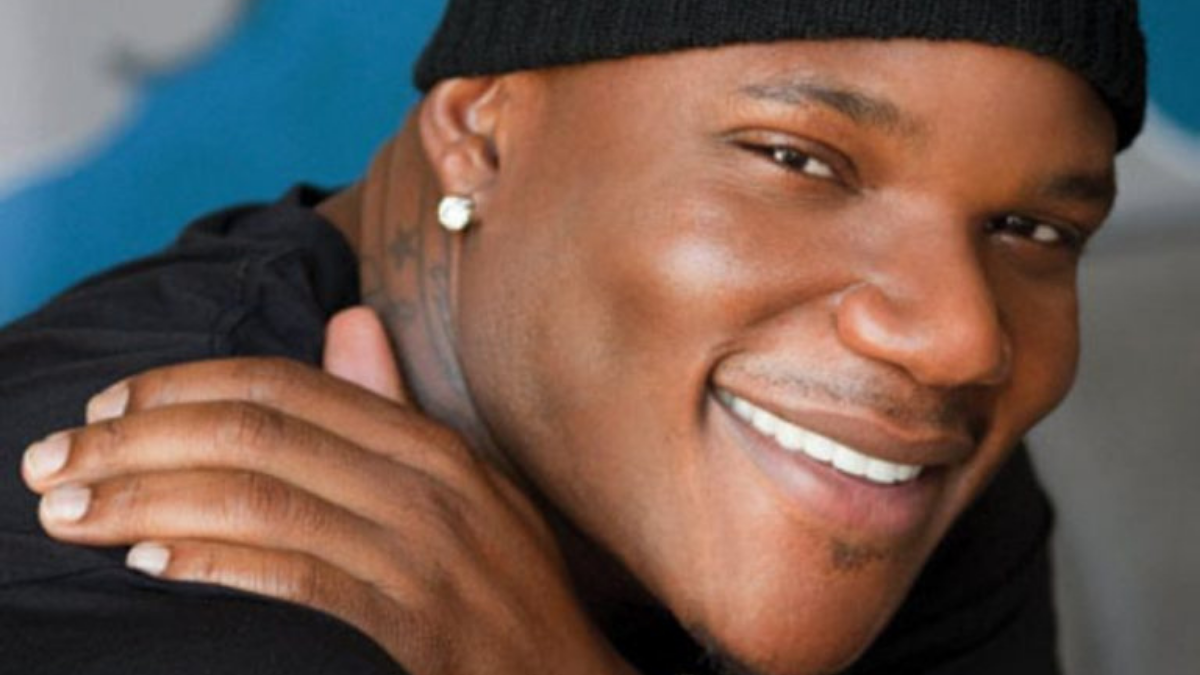

 Business3 years ago
Business3 years ago
 Business2 years ago
Business2 years ago
 Business2 years ago
Business2 years ago
 Business3 years ago
Business3 years ago
 Business3 years ago
Business3 years ago
 Business3 years ago
Business3 years ago
 Business3 years ago
Business3 years ago
 Business3 years ago
Business3 years ago

